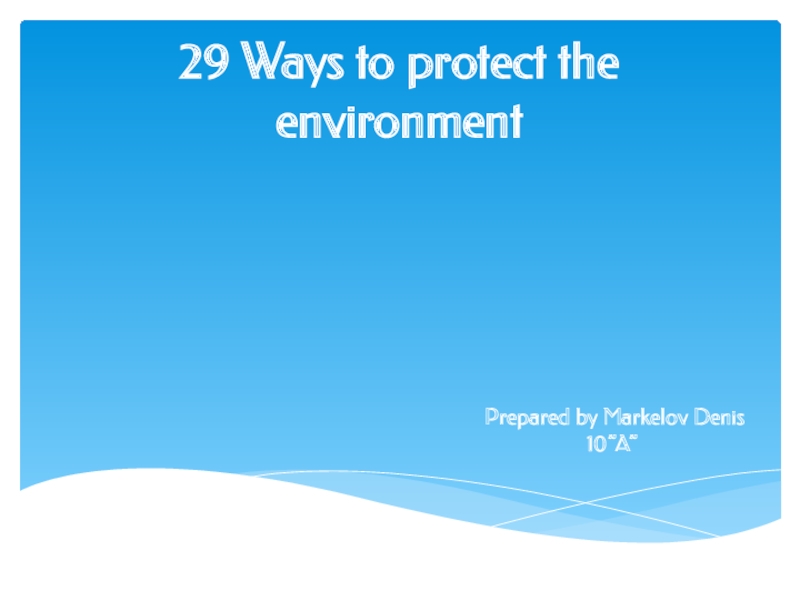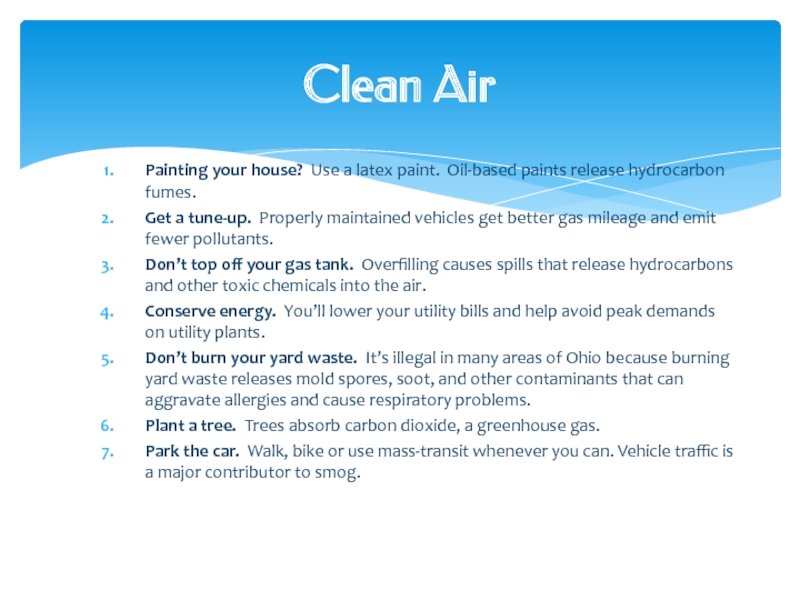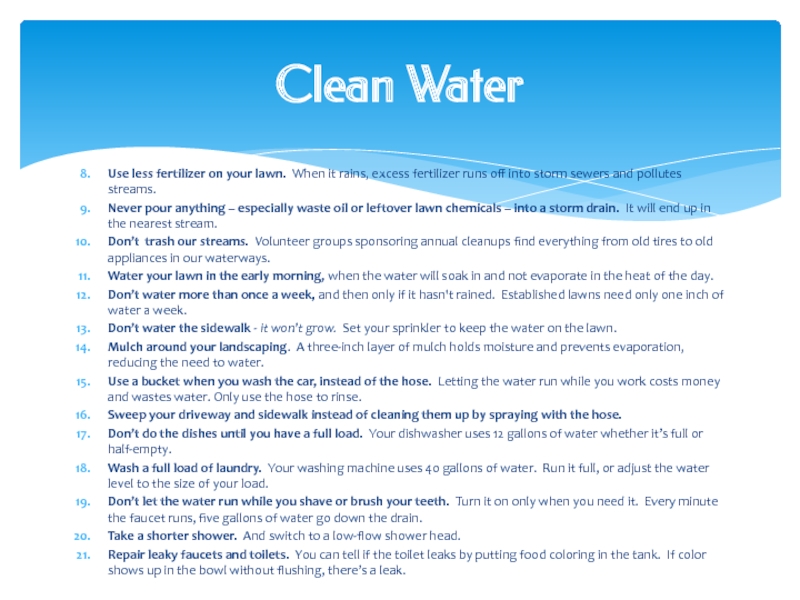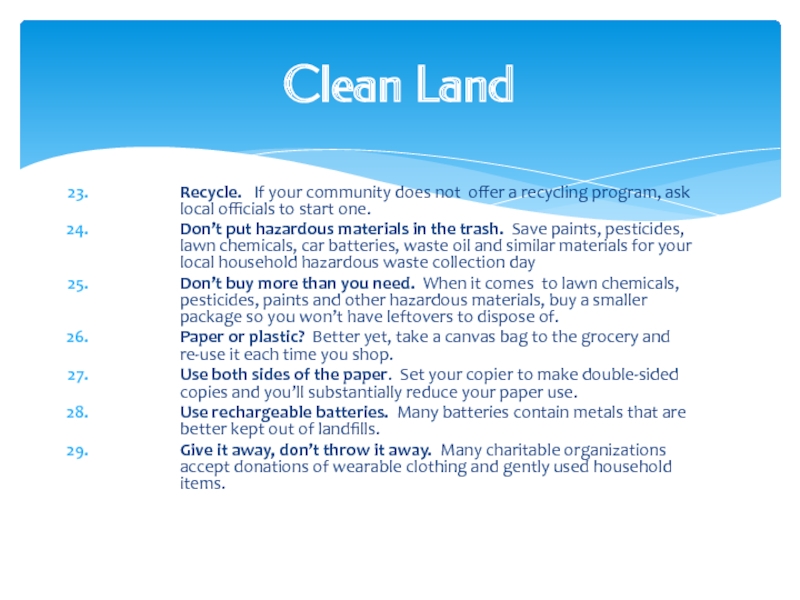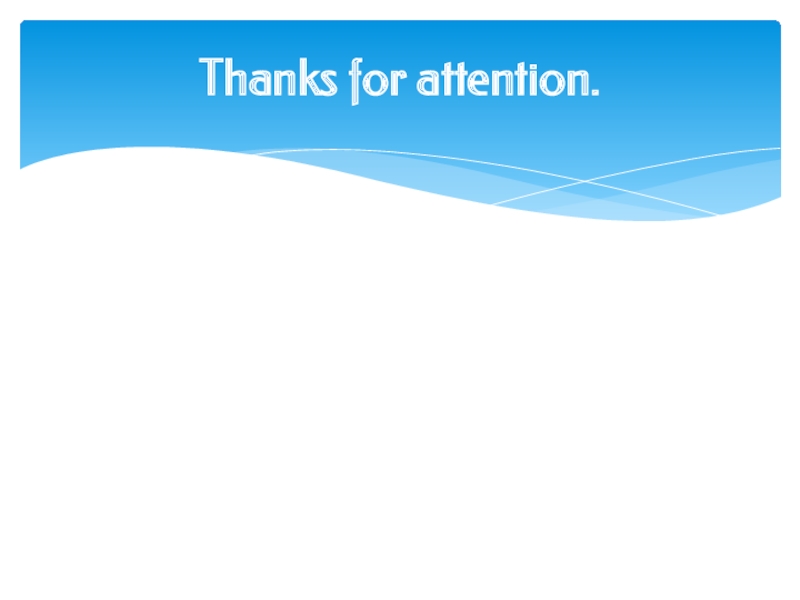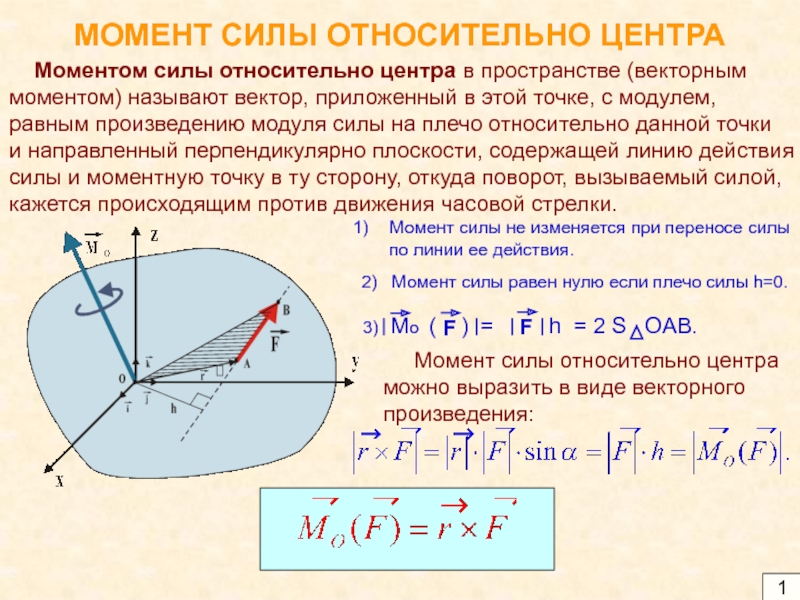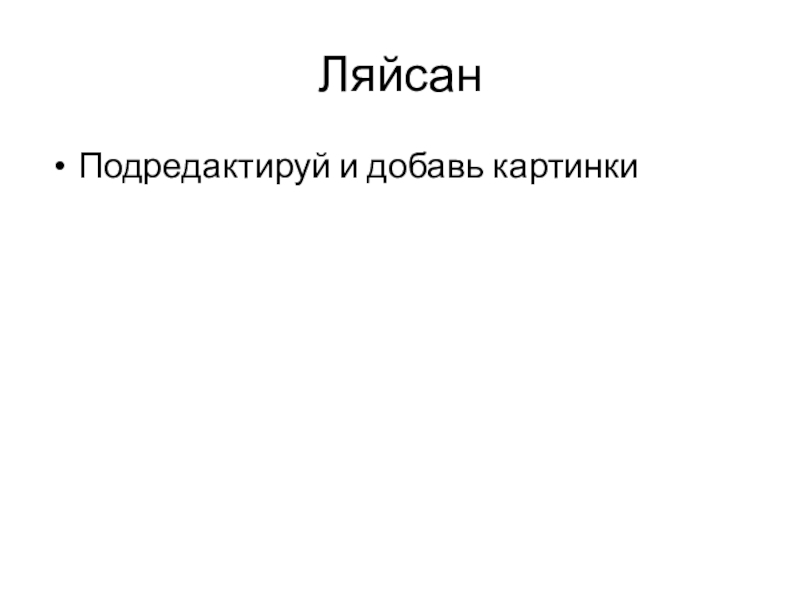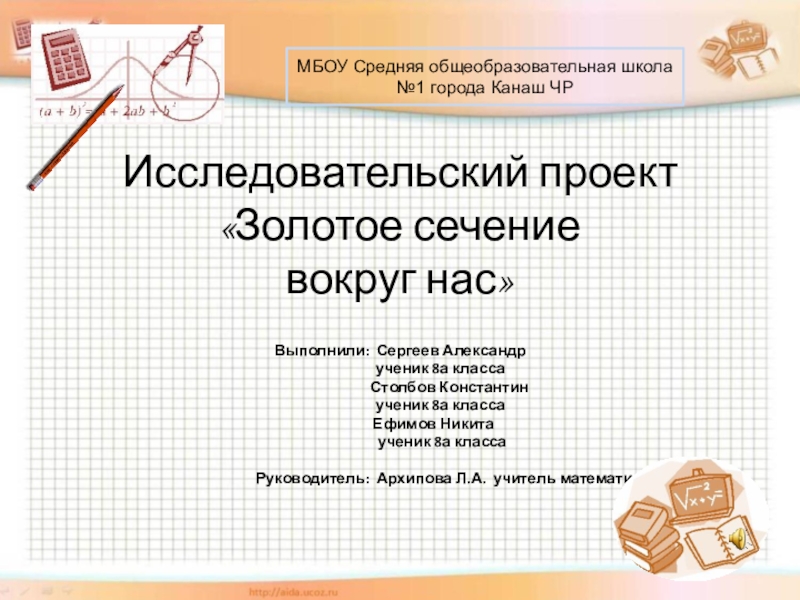Разделы презентаций
- Разное
- Английский язык
- Астрономия
- Алгебра
- Биология
- География
- Геометрия
- Детские презентации
- Информатика
- История
- Литература
- Математика
- Медицина
- Менеджмент
- Музыка
- МХК
- Немецкий язык
- ОБЖ
- Обществознание
- Окружающий мир
- Педагогика
- Русский язык
- Технология
- Физика
- Философия
- Химия
- Шаблоны, картинки для презентаций
- Экология
- Экономика
- Юриспруденция
29 Ways to protect the environment
Содержание
Painting your house? Use a latex paint. Oil-based paints release hydrocarbon fumes.Get a tune-up. Properly maintained vehicles get better gas mileage and emit fewer pollutants.Don’t top off your gas tank. Overfilling causes
Слайды и текст этой презентации
Слайд 2Painting your house? Use a latex paint. Oil-based paints release
hydrocarbon fumes.
Get a tune-up. Properly maintained vehicles get better gas mileage
and emit fewer pollutants.Don’t top off your gas tank. Overfilling causes spills that release hydrocarbons and other toxic chemicals into the air.
Conserve energy. You’ll lower your utility bills and help avoid peak demands on utility plants.
Don’t burn your yard waste. It’s illegal in many areas of Ohio because burning yard waste releases mold spores, soot, and other contaminants that can aggravate allergies and cause respiratory problems.
Plant a tree. Trees absorb carbon dioxide, a greenhouse gas.
Park the car. Walk, bike or use mass-transit whenever you can. Vehicle traffic is a major contributor to smog.
Clean Air
Слайд 3Use less fertilizer on your lawn. When it rains, excess fertilizer
runs off into storm sewers and pollutes streams.
Never pour anything
– especially waste oil or leftover lawn chemicals – into a storm drain. It will end up in the nearest stream.Don’t trash our streams. Volunteer groups sponsoring annual cleanups find everything from old tires to old appliances in our waterways.
Water your lawn in the early morning, when the water will soak in and not evaporate in the heat of the day.
Don’t water more than once a week, and then only if it hasn't rained. Established lawns need only one inch of water a week.
Don’t water the sidewalk - it won’t grow. Set your sprinkler to keep the water on the lawn.
Mulch around your landscaping. A three-inch layer of mulch holds moisture and prevents evaporation, reducing the need to water.
Use a bucket when you wash the car, instead of the hose. Letting the water run while you work costs money and wastes water. Only use the hose to rinse.
Sweep your driveway and sidewalk instead of cleaning them up by spraying with the hose.
Don’t do the dishes until you have a full load. Your dishwasher uses 12 gallons of water whether it’s full or half-empty.
Wash a full load of laundry. Your washing machine uses 40 gallons of water. Run it full, or adjust the water level to the size of your load.
Don’t let the water run while you shave or brush your teeth. Turn it on only when you need it. Every minute the faucet runs, five gallons of water go down the drain.
Take a shorter shower. And switch to a low-flow shower head.
Repair leaky faucets and toilets. You can tell if the toilet leaks by putting food coloring in the tank. If color shows up in the bowl without flushing, there’s a leak.
Clean Water
Слайд 4Recycle. If your community does not offer a recycling program,
ask local officials to start one.
Don’t put hazardous materials in
the trash. Save paints, pesticides, lawn chemicals, car batteries, waste oil and similar materials for your local household hazardous waste collection dayDon’t buy more than you need. When it comes to lawn chemicals, pesticides, paints and other hazardous materials, buy a smaller package so you won’t have leftovers to dispose of.
Paper or plastic? Better yet, take a canvas bag to the grocery and re-use it each time you shop.
Use both sides of the paper. Set your copier to make double-sided copies and you’ll substantially reduce your paper use.
Use rechargeable batteries. Many batteries contain metals that are better kept out of landfills.
Give it away, don’t throw it away. Many charitable organizations accept donations of wearable clothing and gently used household items.
Clean Land
